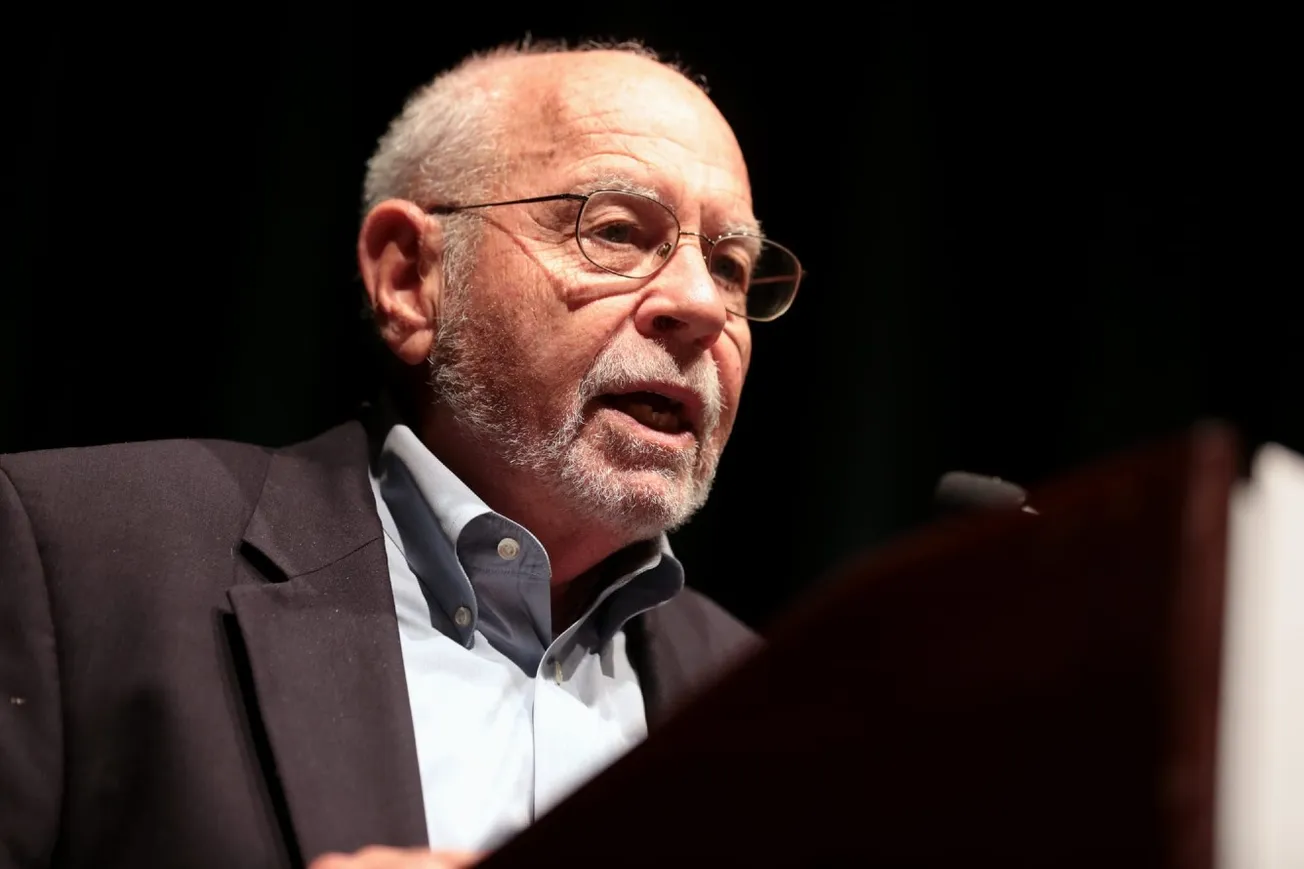By Steve Miller, RealClearInvestigations | May 16, 2023
While pushing record spending for research and development, the Biden administration is working not just to advance science but also progressive ideology. In line with the administration’s “whole of government” commitment to diversity, equity, and inclusion, recent grants and requests for proposals from the National Science Foundation encompass research that:
Examines how artificial intelligence may exhibit bias against “disadvantaged groups.”
Looks at the negative experiences of minorities studying engineering and finds ways to create a culture that makes “diversity, equity, and inclusion a priority in the engineering enterprise.”
Creates “equitable mathematics” by exploring how math instruction “may serve to marginalize students.”

Critics, including some scientists, claim such projects are outside the scope of the National Science Foundation, whose $10 billion annual budget is one of the government’s prime mechanisms for supporting basic research in the non-medical sciences. Through 11,000 awards each year to academic and corporate researchers, the NSF sets the agenda for inquiry in a wide variety of fields including computer science, environmental science, mathematics, engineering, and the social and psychological sciences.
“People should realize that [we] are paying tax money to fund science that should be going to help improve people’s lives,” said Leif Rasmussen, a research Ph.D. student at Northwestern University who has analyzed NSF research grant funding in a white paper titled, “Increasing Politicization and Homogeneity in Scientific Funding.”
“That money isn’t always going to that [and] is instead pushing an agenda in which people have to use the right words,” Rasmussen adds.
His research shows that the emergence of politically driven science did not begin with the Biden administration. He found that 3% of successfully executed NSF grants in 1990 included indicative terms such as “equity,” “inclusion,” or “diversity.” In 2020, such words appeared in 30% of grants. And the number rose to 36% of all executed grants in 2021, the first year of the Biden administration and the last year he has numbers for.
“These types of grants claim diversity is inherently beneficial to scientific progress, but ironically, that statement has not come anywhere close to being validated scientifically,” Rasmussen added in an email. He noted that the “NSF reviews are conducted by a community of academic scientists and so the community is still responsible for the ideological turn.”
An NSF spokeswoman, Martha Vilarchao Klinck, defended the foundation's DEI efforts.
“For more than two decades, NSF has been engaged in a concerted effort to address racial disparity,” she said in an email. “NSF’s extensive portfolio of funded activities aimed at broadening participation in STEM [science, technology, engineering, and math] provides a strong foundation for such efforts. We continue to work with the STEM community, government agencies and other stakeholders to better understand the barriers and how best to support efforts to increase diversity, equity, and inclusion in STEM.”
The increasing politicization of NSF grants echoes the embrace of progressive ideology across the sciences, including the medical sector, a focus of earlier RealClearInvestigations reporting.
Many medical schools now require a DEI statement from applicants, and some course studies begin with the preconception of implicit bias in the healthcare system. That assumption is embedded in grants from the National Institutes of Health, the primary source of federal funding.
“There is plenty of research that can no longer get funded by the NIH due to political correctness,” said Michael Bailey, a professor of psychology at Northwestern University. Sexuality, for example, is very difficult to research objectively, as progressive definitions blur distinctions between male and female.
“Both political sides have been less concerned about the truth over the years, but these days, the left is far more deranged and destructive than the right,” Bailey said. “And that doesn’t mean it can’t go the other way at some point.”
Among the aims of NSF funding and programs is a social goal that goes beyond increasing scientific knowledge: boosting the participation of minorities and women in science, technology, engineering, and mathematics – an endeavor the federal government has spent millions of dollars pursuing since the early 80s, when encouraging girls and young women in the STEM disciplines was the focus.
Government-funded research for science has long been considered the most objective way to learn about the world and its workings. In the past, private funding sources have delivered results influenced by outside interests.

In 1953, under increasing scrutiny for the alleged link between tobacco and cancer, the tobacco industry funded studies that, it insisted, showed the cancer link was tenuous. In 1967, the sugar industry did the same thing as public health officials probed the link between sugar and heart disease. Both industries were skewered publicly and legally for their financial connection to the studies, which were later discredited.
In today’s echoes of the tobacco and sugar industries, publicly funded research derives results favorable to supporters ranging from top-notch medical schools to the federal government to political advocates. Research that aligns with a political stance is celebrated as “the science” for validating activist claims of existential threats from a climate crisis or the contested benefits of “gender-affirming” care. Such research is often rooted in assertions of systemic or institutional “racism” espoused mostly by progressives.
A RealClearInvestigations review of advertised research grants and funded projects over the past three decades finds that while purely scientific research continues, ideology continues a steady advance into many programs. The Biden administration has issued two executive orders, part of its “whole of government” approach to addressing self-defined inequities in federal government programs. Both ordered federal agencies to advance plans to address “underserved” communities, and both assume entrenched racial bias in the federal system.
The policies extend across the federal government’s spectrum, touching scientific research administrated by all executive agencies.
For research pitches to the federal Bureau of Land Management, the project seeking funding “must assist BLM in meeting … one of the following priorities of the Biden-Harris Administration,” the grant notice states, listing Biden’s executive orders, including addressing climate change, advancing racial equity, and employing union labor.
“These academic forms of reparations are a good glimpse of what priorities are,” said John Sailer, a fellow at the National Association of Scholars, a conservative advocacy group. “They see race as a frontier to be transformed and utilized as a tool for their social goal.”
The NSF funds many studies regarding climate change, and almost all assume it is manmade and requires vigorous action to address. Duke University, for example, has issued a “climate commitment” to “address the climate crisis by creating sustainable and equitable solutions.” The North Carolina school today is offering a number of NSF-funded grants in keeping with its platform, including proposed research that will “contribute equitable solutions to climate change mitigation” – linking the research funding to carrying out work that supports the university’s climate concerns.
There is notable pushback. While meteorology and other topics related to the climate are worthy research pursuits, the research “should not push climate change” with a foregone conclusion, said John Staddon, professor emeritus of psychology at Duke University and author of “Science in an Age of Unreason,” which examines how social causes have impacted science. “Yet the university will push faculty members to get research in that area.”
In an email, Duke research spokesman Karl Bates said, “I’ve been writing about the scientific findings and trends since 1990 and it’s very real. Any controversy … is manufactured. I’m confident I speak for the university when I say we find these ‘teach both sides’ arguments about climate to be unpersuasive.”
Critics argue that the grants approved only tell part of the story of social justice diktats in research: There is the research not executed because it does not align with the prevailing narrative. Studies of correlations between race and IQ, for example, are nearly verboten.
“Most science is boring and people don’t get emotional about talking about protein folding or battery efficiency, and that allows science to progress,” said Stephen Hsu, who was forced out of his job as senior vice president for research and innovation at Michigan State University in 2020 after he commented on research regarding natural intelligence and the possibility of biological traits in populations. “When you get into these areas that are emotionally charged, all bets are off and you can have one paradigm dominate, and that field doesn’t make any progress.”
Hsu, who remains a professor at MSU, said funding for research on differences in natural intelligence among populations “is sensitive … no one can get money to study the genetic basis for intelligence.”
While the science research system worked relatively well for decades, “scientists believe they are intellectually independent, and they can be,” said J. Scott Turner, a biologist and emeritus professor of biology with the State University of New York in Syracuse. “Now, when this funding is overseen by certain entities, they want certain results,” he said.
This equation, Turner said, also casts doubt on what should be scientifically derived information.
“It’s a political game now. The death of science should be a source of skepticism. A reality check on government programs is now gone, it’s just not there anymore.”
Original article link
Steve Miller is a veteran news reporter whose publishers have included the Daily Beast, People, and Miami New Times. He has received reporting fellowships with Syracuse University and the University of Florida and is the author of seven books on true crime and rock and roll.









